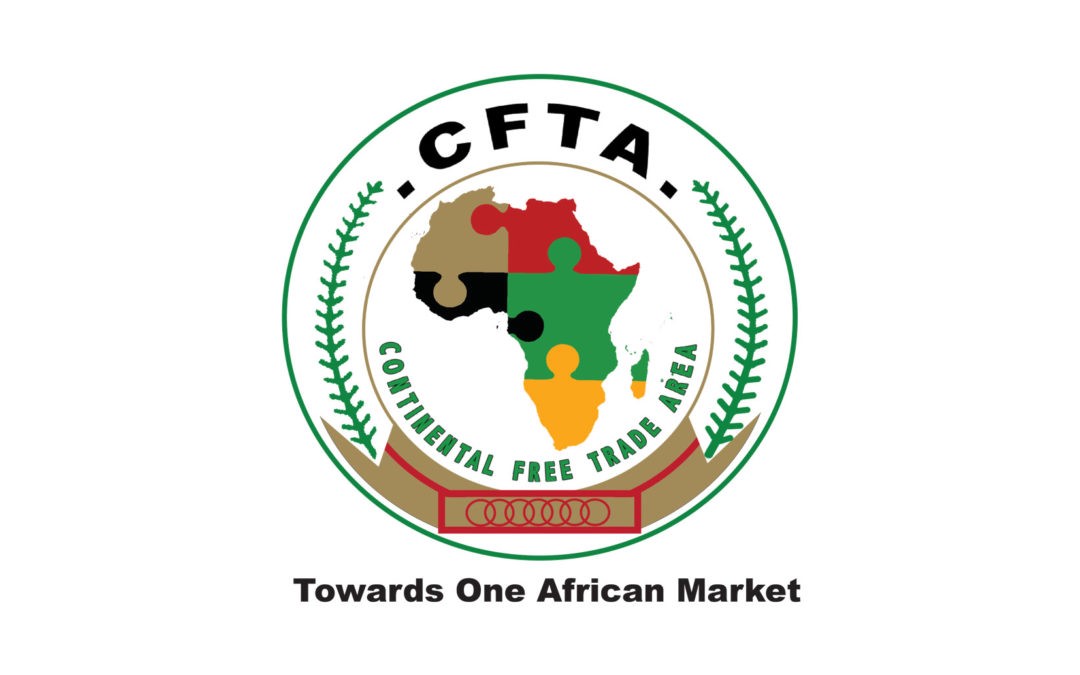Published
4 years agoon

The ambition of African countries to make the continent one big market by January 1, 2021 through the application of the African Continental Free Trade Area (AfCFTA) agreement may further be stifled by the refusal of some 26 member states of the African Union (AU) to ratify the agreement.
Although, the entire 54 countries of the AU have signed the agreement, only 28 among them have so far ratified it as demanded for the policy to set in motion its application across the African continent.
Worried by the dilly-dallying states, Ghana’s President Nana Akufo-Addo, on Monday expressed concerns that should the status quo be maintained, it may be hard to pave way for the January 1, 2021 targeted for the commencement of the AfCFTA agreement.
He said this at the launching of AfCFTA Permanent Secretariat in Ghana on Monday.
The continental project received another boost following the launching which experts believe will hasten economic boost in the continent with about 1.2 billion market size.
At a ceremony on to commission the permanent secretariat, Akufo-Addo and Moussa Faki Mahamat, chairperson of the AU Commission, reiterated the importance of the body to the continent’s economic transformation agenda.
“The economic integration of Africa will lay strong foundations for an Africa beyond aid. Africa’s new sense of urgency and aspiration of true self-reliance will be amply demonstrated by today’s ceremony,” Akufo-Addo said.
Ghana was selected as the venue for the headquarters by African leaders during a Summit of AU Heads of states in Niamey in July last year, to launch the implementation phase of the agreement, which is expected to spur regional trade among member countries.
From a total of 28 as at 2018, currently, 54 nation states have signed on to AfCFTA, out of which 28 have ratified.
The Ghanaian President appealed to member states that have not ratified to do so before the next AU summit in December, “to pave the way for the smooth commencement of trading from 1 January 2021.”
The COVID-19 pandemic has heightened the importance of the success of the AfCFTA, according to the president.
“The destruction of global supply chains has reinforced the necessity for closer integration amongst us so that we can boost our mutual self-sufficiency, strengthen our economies and reduce our dependence on external sources,” he said.
AfCFTA, the world’s largest free trade area, has the potential to transform the continent with its potential market of 1.2 billion people and combined GDP of around $3 trillion across the 54-member states of the AU.
Meanwhile, Mahamat said the opening of the secretariat marked a milestone in the vision of Africa’s founding founders for continental integration.
Wamkele Mene, the first secretary-general of the AfCFTA, said the agreement offered an opportunity for Africa to confront the significant trade and economic development challenges.
Mene highlighted those challenges to include market fragmentation, small national economies, over-reliance on primary commodity exports, narrow export base, lack of export specialization, under-developed regional value chains and high regulatory and tariff barriers to trade.
“We have to take action now. We have to take action to dismantle the colonial economic model that we inherited,” he reiterated.
The African Development Bank Group provided a $5 million institutional support grant to the AU towards the establishment of the AfCFTA secretariat which is located in an ultra-modern office complex in the central business district of the Ghanaian capital.
“The African Development Bank congratulates the AU/AfCFTA on the investiture of the Secretariat hosted by Ghana on 17 August 2020.The Bank is delighted to be associated with this groundbreaking, game-changing, transformational continental initiative in furtherance of the objective to create the Africa we want,” said Solomon Quaynor, the Bank’s vice-president for the private sector, infrastructure and industrialization.
“Our support to the AfCFTA is in keeping with the Bank’s role of continental leadership in helping to build special-purpose vehicles that are critical to the successful implementation of crucial institutions to accelerate Africa’s economic development objectives,” Quaynor added.
The event also featured virtual goodwill remarks from AU Chairman, President Cyril Ramaphosa of South Africa, and Nigerien President Mahamadou Issoufou.














